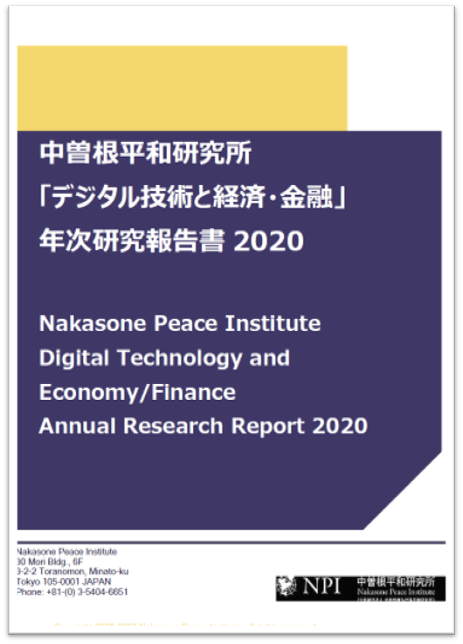2009/06/30
No. 70: Taizo Yakushiji, "Why Japan Needs Science and Technology Diplomacy"
[PDF version]
Japan has concluded science and technology agreements with 42 different countries, but a mere 16.7% of these are with developing nations in Asia, Latin America, and Africa-a percentage that is far outstripped by the corresponding percentages for the US (48.6%), Germany (37.9%), and France (48.1%). In regional terms as well, a mere 11.9% of the cooperative science and technology relationships that Japan has established are with Asian nations, compared to 24.3% for the US, 20.7% for Germany, and 14.8% for France. In terms of agreements with African nations, those established by Japan constitute a mere 2.4% of all their agreements, compared with 13.5% for the US, 3.4% for Germany, and 11.1% for France.
This indicates that Japan's science and technology cooperation agreements are unique in that there is a strong bias towards agreements with the industrialized nations, though the country has already reached an industrialized stage. In contrast, Japan's ODA support is heavily oriented towards the developing nations. In short, there has been a tendency to pursue two separate tracks, with leading edge science and technology being shared with the industrialized nations, and less advanced "middle of the road" technology going to developing nations.
There is nothing wrong in and of itself with Japan's bias towards science and technology agreements with industrialized nations. However, Japan probably ought to make greater contributions to developing nations in Asia and Africa if it wishes to demonstrate international leadership in terms of using its top notch science and technology capabilities as a soft power diplomatic resource.
This would seem to require innovative science and technology policy-and the necessary policy innovation has taken the form of science and technology diplomacy. For example, it has been recommended that, as part of Japan's science and technology diplomacy, the Ministry of Education, Culture, Sports, Science and Technology and the Ministry of Foreign Affairs jointly undertake an "environmental leaders educational program" commencing in Asian and African countries. In addition, there is a joint international project on the global environment aimed at developing nations and run by Japan Science and Technology Agency (under the Ministry of Education, Culture, Sports, Science and Technology) and Japan International Cooperation Agency (under the Ministry of Foreign Affairs) that involves water resources, disaster prevention, and the environment. Japanese universities have been providing support for rice cultivation in Asian and African countries and have established centers for research into emergent and re emerging infectious diseases in Asia and Africa. These initiatives do not involve run of the mill technology, but technology of a fairly high level. In other words, the use of cutting edge Japanese science and technology to make contributions in developing nations increases Japan's soft power. This represents a major difference between science and technology diplomacy as policy innovation and past government-to-government agreements in science and technology.
Over time, however, any government's innovative policy can lose its momentum and meet its demise due to a change in administration or a reshuffle that causes its active supporters to be replaced-in effect, the policy passes its sell by date. Science and technology diplomacy is no exception to this rule, and it is essential that this be fully comprehended. Future challenges for science and technology diplomacy, as discussed below, should be viewed in this light.
A series of international conferences have thrust Japan into center stage: the science and technology ministers' conference in Okinawa in 2007, the fourth African conference held in May 2008, the G8 Summit held in Toyako in July, the Science and Technology Ministers' Round Table Meeting in Kyoto in October, and the Japan Africa Science and Technology Ministers' Meeting the same month. Consequently, it was possible to cast science and technology diplomacy in a positive light, even with its many inherent demands. However, the next G8 summit will be held in Italy, and it is likely that the Italian government will put an Italian perspective on African issues. It is also likely that, with regard to global environmental issues, there will not be the same emphasis on science and technology that there was at the G8 summit in Japan.
Although it was Japan that first set out the concept of science and technology diplomacy, any other country adopting and developing a similar program would also increase the synergetic effects between its diplomacy and its science and technology and thus its soft power. If such countries were to emerge in great number, Japan would be regarded as a leader in the realm of world politics. In fact, diplomacy is an area that requires qualified personnel. Science and technology diplomacy is no exception. We need new enlightened diplomats to incorporate science and technology as an important diplomatic resource. In the meantime, we need equally enlightened scientists and engineers to serve as private diplomats and actively engage scientific and technological communities overseas. In order to refine science and technology diplomacy and to cultivate future manpower resources for this area, a new joint degree course or a similar academic program is needed in which students majoring in science and technology could study alongside students majoring in the social sciences. One day, hopefully, science and technology diplomacy will be added to the subfields of the discipline of international relations.
Taizo Yakushiji is Research Director at the Institute for International Policy Studies in Tokyo and Professor of Political Science at Keio University. He was also a member of the Council for Science and Technology Policy in the Japanese Cabinet Office.
The views expressed in this piece are the author's own and should not be attributed to The Association of Japanese Institutes of Strategic Studies.





